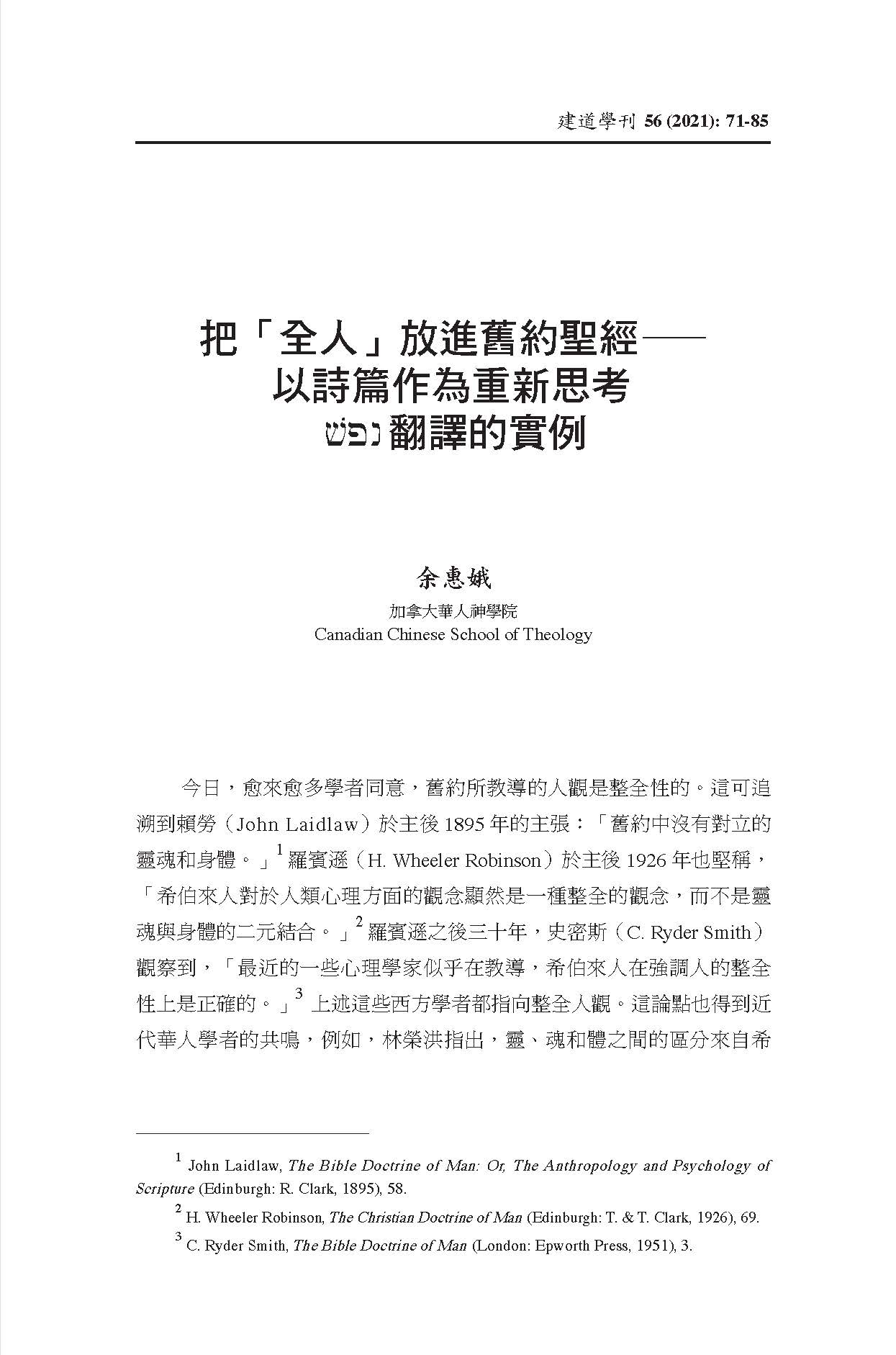把「全人」放進舊約聖經—以詩篇作為重新思考נפשׁ翻譯的實例 / 余惠娥
余惠娥
撮要
整全人觀乃舊約的教導已受到中西方不同學者的認可。然而,今日的華人基督徒依然普遍受到三元論的影響。其中一個主要的原因是,中文聖經版本忽略 נפשׁ 這個希伯來文單詞的學術研究成果。這成果指出,它的語意範圍包含「全人」,用來表達「強烈的」思想、情感、意志。這樣一個能夠適切地反映整全人觀的理解卻不見於中文舊約聖經。反觀西方學術界,將 נפשׁ 翻譯為「全人」已開始受到一些英文聖經版本和釋經書的接納。本文試圖把「全人」這譯文應用在נפשׁ 出現次數最多的書卷—詩篇。
ABSTRACT
Wholistic anthropology has been endorsed as the teaching of the Old Testament by different Chinese and Western scholars. However, today’s Chinese Christians are still generally influenced by trichotomy. One of the main reasons is due to Chinese Bible versions’ neglect of the academic findings of the Hebrew word נפשׁ , which denote the “whole being/person” as one of the meanings in its semantic field. The rendering of “whole being/person” expresses “strong” thought, emotions, and will. Such understanding that can appropriately reflect the wholistic anthropology is not found in the Chinese Old Testament. In Western academia, the translation of נפשׁ as “whole being/person” has begun to find reception in some English Bible versions and commentaries. This article attempts to apply the translation of “whole being/person” to the book of Psalms, as נפשׁ appears the most frequently in it.
原載於《建道學刊》56期(2021年7月),頁 71-85。
Latest Articles
新手牧者研究計劃(三):新手牧者的身心靈狀態 / 盧慧儀
2025 年 11 月 19 日
個體與關係:滕近輝思想中「深化」的靈性觀 / 倪步曉
2025 年 11 月 18 日
香港九龍塘基督教中華宣道會之起源和發展史/陳智衡
2025 年 10 月 20 日
Highlights
[電子書]困境與抉擇:「建道研究中心30週年誌慶」跨學科研討會論文集/廖炳堂、倪步曉主編
2025 年 1 月 2 日
從梧州到長洲:建道神學院125年的挑戰與恩典 / 陳智衡
2023 年 10 月 1 日
微小教會的見證/高銘謙
2023 年 6 月 1 日







